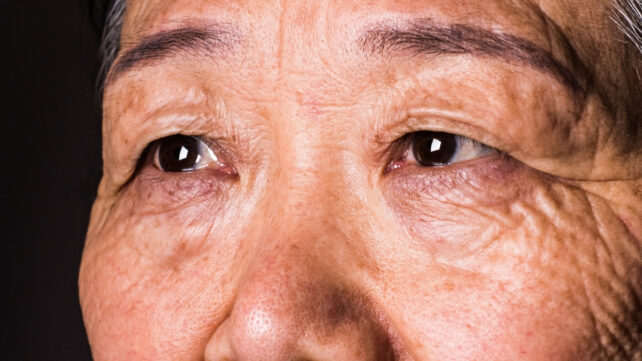The eyes are a window to the brain – and this outward extension of the central nervous system may reveal early signs of cognitive decline.
Two recent and large population studies, one in the United Kingdom and another in Australia, suggest that those who perform worse on simple vision tests have a higher risk of developing dementia more than a decade down the road.
The UK study, which was published in 2024, found that participants with slower visual processing speeds were more likely to develop dementia over the following 12 years.
The study from Australia, meanwhile, found that deteriorating visual acuity was a significant predictor of cognitive decline over a similar 12-year period.
Related: Your Eyesight Could Be Putting You at Risk of Developing Alzheimer's
"A decline in vision can be caused by a range of factors, some of which are treatable. For example, cataracts, or vision decline that can be supported with the correct glasses," said the lead author of the Australian study, neuroscientist Nikki-Anne Wilson at Neuroscience Research Australia (NeuRA).
"What the research is now showing is that identifying these changes early and addressing them may help reduce the risk of developing dementia."

In light of compelling new evidence, The Lancet's latest Commission on dementia in 2024 identified vision loss in late life as a new risk factor for cognitive decline, contributing to up to 2.2 percent of cases.
By comparison, untreated hearing loss in mid-life contributes to an estimated seven percent of cases.
Just because an older individual is suffering from hearing or vision loss doesn't mean they are doomed to develop dementia. These issues can be indicative of numerous underlying health problems – so as a diagnostic tool for dementia, sensory tests like these are less than perfect.
At a population level, however, emerging research suggests that wearing hearing aids may reduce the risk of developing dementia, and the same could be true of treating vision issues.
Assessing these sensory issues in older adults could, therefore, be crucial.

In the 2024 study from Australia, scientists analyzed visual acuity and cognitive decline among 2,281 participants. Their models showed that deteriorating vision significantly predicted poorer problem-solving, memory, and attention scores.
Interestingly, however, social engagement somewhat mediated that association.
"We show for the first time that the relationship between a decline in vision and global cognitive performance may be partly explained by reduced social contact," explained Wilson.
"People experiencing poorer vision may be more likely to avoid social events due to anxiety and this too may impact their cognitive performance. Our findings indicate the importance of maintaining social contact, not only because social isolation is a risk factor for dementia itself but also because it might also help to reduce the impact of other risk factors, such as poorer vision. However, further work is needed."
Related: These 4 Distinct Patterns May Signal Alzheimer's According to Science
In the study from the UK, more than 8,000 participants undertook a vision test, where they had to press a button as soon as they saw a triangle appear on a screen in front of them.
By the end of the study, individuals with slower visual processing speeds were much more likely to have been diagnosed with dementia.
But this wasn't a clinically valuable prediction for the individual. In other words, these tests were not able to identify which individuals would be diagnosed with dementia based on their vision scores alone.
The authors suggest that tests like these could, however, be "integrated into the screening process for dementia risk and early diagnoses alongside other cognitive tests."
A recent study found one in five dementia cases among older people were linked to common vision issues. There's a possibility that addressing these vision problems may in turn mitigate some factors behind dementia.
Dementia is highly complex, and it's doubtful that any one risk factor contributes to the disease alone.
Growing evidence, however, suggests that the eyes are very sensitive to the damage of aging in general. Wear and tear that shows up in retinal scans, for instance, is a significant predictor of mortality risk, and it's worth noting that dementia is the most common cause of death in the UK.
In The Lancet's latest Commission on dementia, the authors recommend making screening and treatment for vision loss accessible for all.
"A clear opportunity for dementia prevention exists with treatment of visual loss," the large cohort of experts concludes.

